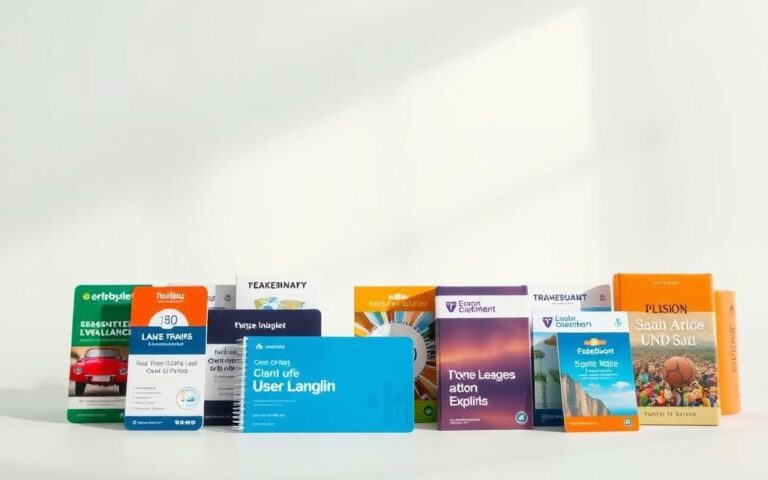Advertisement
Did you know that over 300 million people live outside their home countries? Many find managing money in a new place tough. By learning how financial management works abroad, you can improve your life significantly. This guide shares key tips like checking your income and spending, making a budget, and understanding currencies.
Good financial planning can reduce stress and help you enjoy your life abroad more. Whether dealing with international banks or figuring out taxes, these tips are here to help. They will set you up for a great start in your new country.
Assessing Your Financial Situation Before Moving
Before you move, it’s key to closely look at your finances. This means understanding what you earn and spend to make a good budget. Knowing about currency exchange is also crucial. Looking into global banking can really help when you live in another country.
Evaluating your current income and expenses
Gather your financial records like pay stubs and bank statements. This lets you see your income versus what you spend each month. It’s vital to know this to plan your budget for living abroad.
Understanding currency exchange rates
Exchange rates change and affect how much money you get when you switch currencies. It’s important to keep up with these rates to use your money wisely. Using tools like currency converters can help you decide when and how to exchange your money.
Exploring international banking options
Think about getting an account with a global bank. These banks usually have better exchange rates and online tools for expats. A local account makes it easy to handle your money overseas. Researching different banks helps you find one that meets your financial needs.

Creating a Comprehensive Budget for Expats
Making a budget for expats means carefully looking at all monthly expenses. This helps stay financially stable in a new place. It’s key to match your budget with the local economy to handle daily costs well.
Breaking down your monthly costs
Start by listing monthly expenses like:
- Housing: Rent or mortgage payments
- Utilities: Electricity, water, and gas bills
- Transportation: Public transit, fuel, and insurance
- Food: Groceries and dining out
- Healthcare: Insurance and medical expenses
Doing this gives a clear view of what you need to spend, helping in better planning.
Including savings and emergency funds
It’s crucial to put money into savings and emergency funds. Experts suggest saving at least 20% of your monthly income. An emergency fund should have enough for three to six months of expenses. This keeps you safe if unexpected things happen.
Adjusting your budget for local living conditions
Also, you should tweak your budget as per local costs. Living expenses can change a lot from place to place. Keep an eye on any shifts and adjust your money plan. This ensures your budget stays useful and manageable.

Understanding Taxes and Financial Regulations
Expats have unique challenges with taxes and rules about money. Knowing about these is crucial for financial success. They must understand tax laws in their own country and abroad to avoid fines. Different countries have different tax rules for expats. It’s important to plan well to avoid unexpected taxes and keep your money safe while living overseas.
Tax obligations in your home country
Every expat needs to know about their home country’s tax rules. For instance, U.S. citizens must report all income worldwide. They must file tax returns every year with the IRS. It’s vital to know this to avoid big penalties.
Navigating local tax laws and regulations
Expats also have to understand the tax laws in their new country. Getting to know these laws helps with paying local taxes and finding possible tax breaks. You must follow rules about living there, tax rates, and how to file taxes.
Seeking professional financial advice
Getting advice from a financial expert is smart for expats. These advisors know a lot about expat finance rules and can offer personalized tips. They can help find ways to reduce taxes, use tax breaks, and deal with local tax rules.
| Key Aspect | Home Country Tax Obligations | Local Tax Laws | Professional Financial Advice |
|---|---|---|---|
| Requirement to File | Mandatory for worldwide income | Varies by jurisdiction | Recommended for compliance |
| Penalties for Non-Compliance | Severe fines and interest | Varies, but can be significant | Minimized with expert guidance |
| Complexity | May include various forms | Depends on local rules | Tailored to individual situations |
Strategies for Managing Currency Exchange
Effectively managing currency exchange is vital when you live abroad. Smart strategies can lower costs and make life easier. This helps you get the most out of your new surroundings.
Opening a local bank account
Having a local bank account makes handling money simpler. It lets you use local currency without relying too much on cash exchanges. These usually have poor rates. Local banks often have better rates, keeping your money safe and within reach.
Using international money transfer services
Services like Wise or PayPal help send money across borders effectively. They usually offer better rates than traditional banks. Using these platforms makes your financial transactions smoother and gives you more control over your money.
Minimizing fees on currency exchange
It’s important to cut down on currency exchange fees. Look into various providers and compare their rates before making a move. Some offer exchanges without fees, saving you money. Always compare to get the best deals and manage your expenses well.
| Method | Pros | Cons |
|---|---|---|
| Local Bank Account | Secure, easy access, favorable rates | Fees for maintaining balance, potential withdrawal limits |
| Money Transfer Services | Competitive rates, fast transfers, convenience | Possible transaction fees, service limits |
| Exchange Services | Accessibility, cash on hand, immediate transactions | Higher fees, poor rates |
Saving and Investing While Living Abroad
Living abroad comes with special financial challenges and chances. For expatriates, it’s crucial to save and invest to ensure financial security. Knowing the investment options in the host country helps maximize financial potential.
Exploring investment opportunities in your host country
Different countries have unique investment options for expatriates. People often look into real estate, local stocks, and bonds to increase their wealth abroad. Talking to local financial advisors can help find the best choices that meet personal needs and risk comfort.
Setting up a retirement plan as an expat
It’s critical for expatriates to plan for retirement. Combining home country retirement strategies with local ones can be tricky. Using a Roth IRA or a 401(k) helps ensure a solid retirement plan. It’s key to understand tax impacts to enjoy the full benefits.
Utilizing online platforms for global investing
Thanks to tech advancements, platforms like Vanguard and Charles Schwab offer great help to expatriates. They give access to varied investment portfolios worldwide. With these platforms, saving and investing become simpler, letting people reach their financial goals from anywhere.
Tips for Building an Emergency Fund Abroad
Having a good emergency fund is key for anyone living abroad. It acts as a safety net when unexpected challenges come up. Think about the local living costs, job stability, and your own money situation when setting aside this fund. Aim to save enough to cover three to six months of expenses. This helps you deal with unexpected issues without extra worry.
For saving money smartly, look into high-yield savings accounts which offer better interest rates. Also, setting up automatic transfers helps. This way, some of your money automatically goes into savings. It’s a simple method that builds discipline and a strong financial backup for tough times.
Being able to get to your money easily during emergencies is crucial. Learn how to use local ATMs and how online banking and mobile apps work. A solid plan for accessing your money reduces stress during emergencies. Focusing on these key points when creating an emergency fund will give you peace of mind while living abroad.



